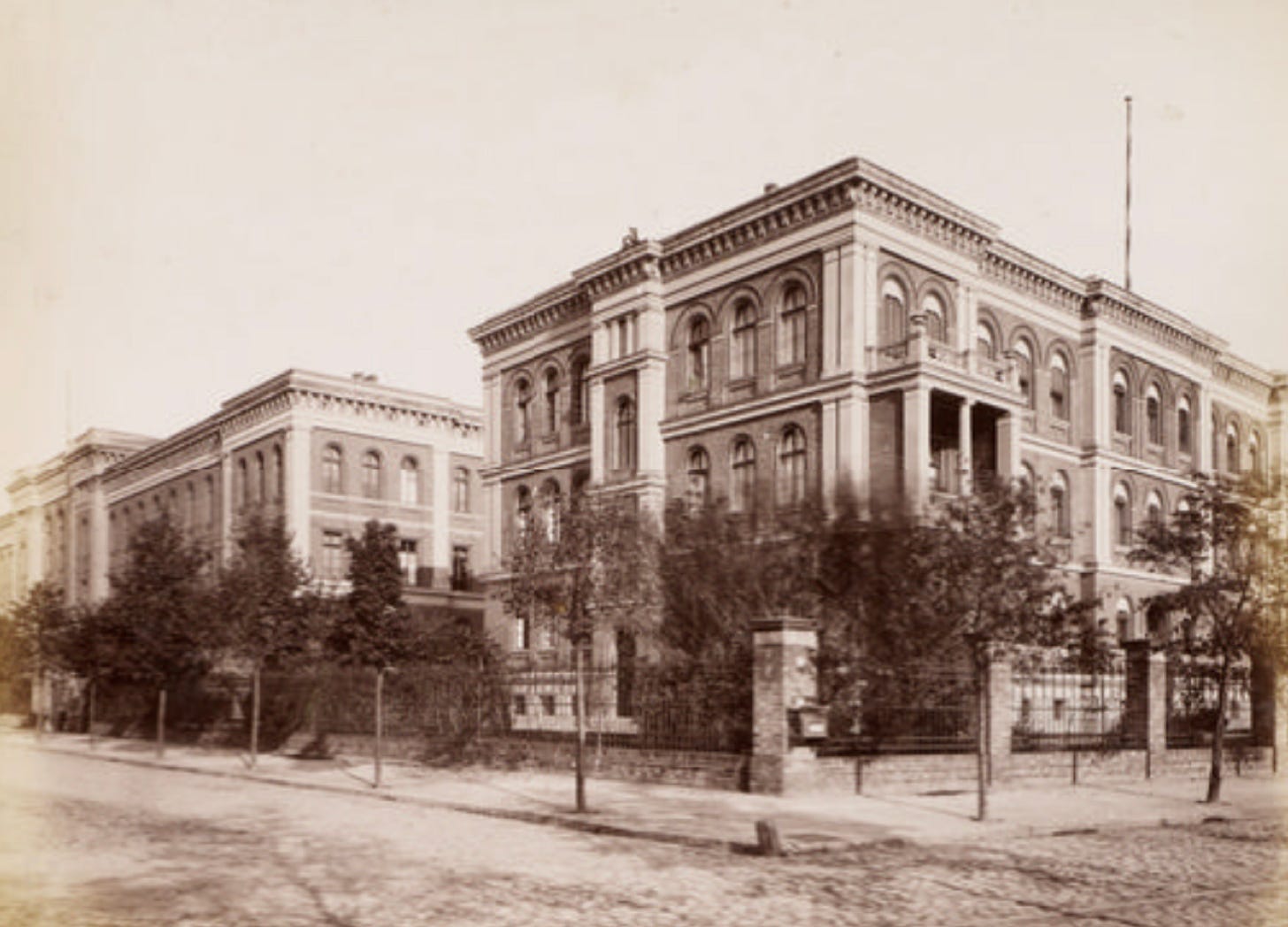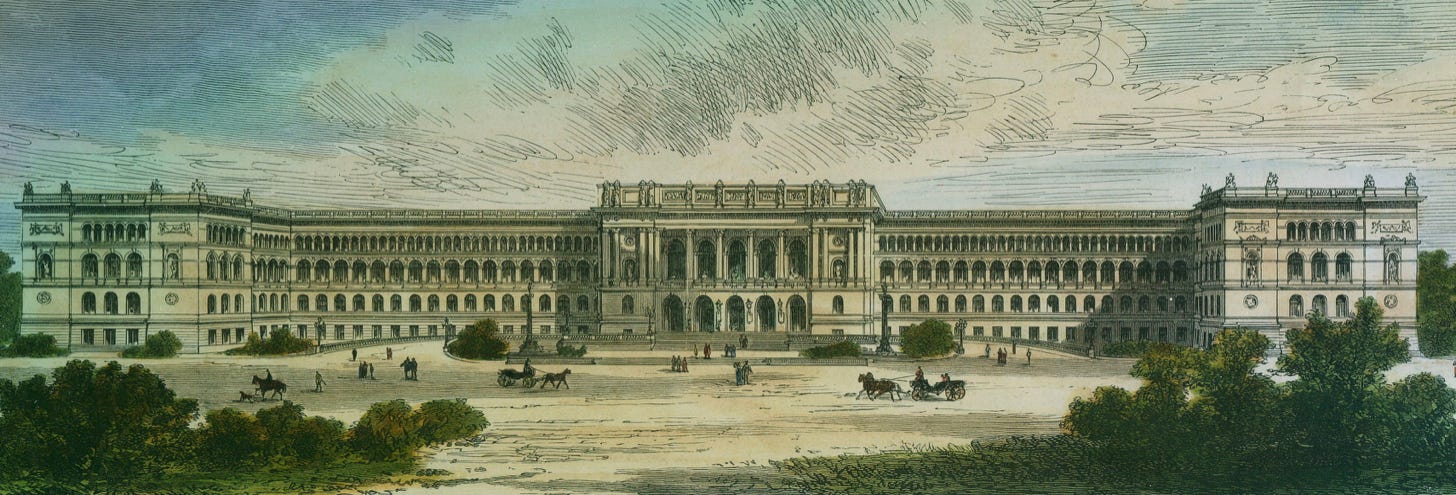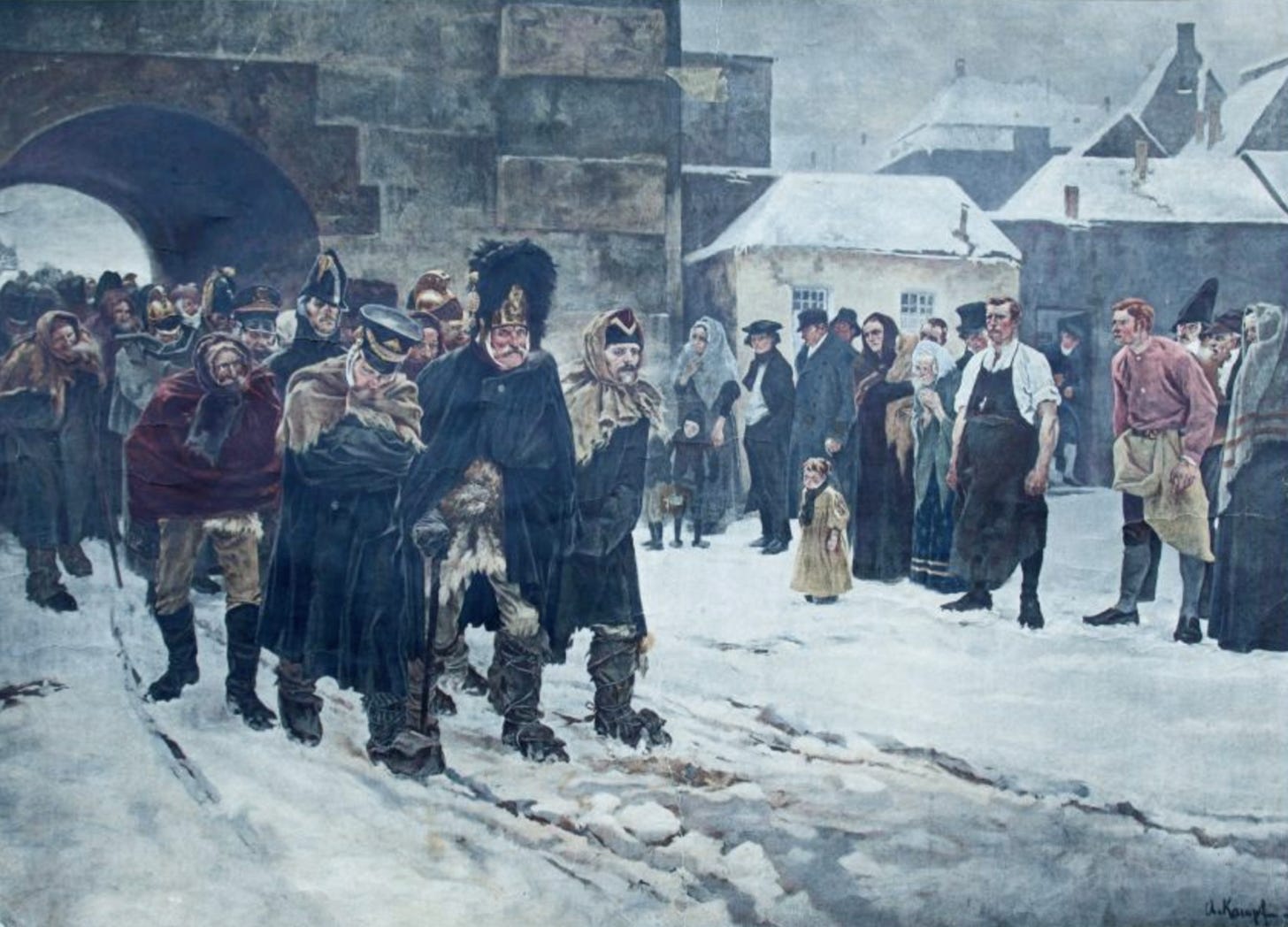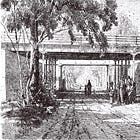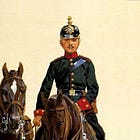The Artillery School in Berlin (II)
From the Memoirs of Major General Franz von Lenski (1865-1942)
In the 1920s, Franz von Lenski (1865-1942) wrote a memoir of his adventures as a junior officer in the last two decades of the nineteenth century. The post the follows continues our serialization of the fourth chapter of this book, the one that deals with the year that Major General Lenski spent as a student at the United Artillery and Engineer School in Berlin. (The links listed at the bottom of this page, in the section marked ‘for further reading’, will take you to other posts in this series.)
In those days, the United Artillery and Engineering School, located just west the Zoological Garden Station, on the corner of Hardenberg-Strasse and the extension of Fasanen Strasse, stood alone in an otherwise open field. (The built-up portion of this part of Berlin, which still included a good deal of open ground, rarely extended beyond places served by the City Train.)
Coming from Zoological Garden Station, you could see wide expanses of heather that, while criss-crossed by well-paved streets, remained free of houses. On the right, the colossus of the Technical University rose up beyond the last trees of the Tiergarten. To the left, the rows of houses of Charlottenburg receded into the distance. Today, when Berlin, Charlottenburg, Wilmersdorf, and Schöneberg form a seamless sea of houses, it is difficult to imagine a time, only 37 years ago, without either the Kaiser Wilhelm Memorial Church or the Nollendorf-Platz.
The program of instruction at the United Artillery and Engineering School, which was intended for the professional education of field artillery, foot artillery, and engineer officers, consisted of courses in a wide variety of military and general sciences. We field artillerymen attended classes in artillery matériel, ballistics, tactics, foreign artillery and mathematics. The teaching method was not purely academic, but applicatory. By far the best was the horse science course given by Professor Moeller from the Veterinary College. One could really learn a lot from him.
Our mathematics lecturer was the old Professor August, descended from a famous family of mathematicians, the son or grandson of the famous Professor August who, while a student at the Graue Kloster Gymnasium in 1813, wrote the wonderful song: The Lord Smote Them All: Man and Horse and Chariot.1
I could only follow him through stereometry.2 When advanced mathematics with integral and differential calculus appeared on the syllabus, I joined the majority of the 30 students in our lecture hall in throwing in the towel. As far as I can tell, advanced mathematics is less a matter of logic, which any sound mind can grasp, than of imagination. One has to have mathematical imagination. Those who lack it, will not be able to acquire it, even if they work day and night.
The old professor was remarkably receptive to jokes. He could sometimes laugh like a child. (Could that have been a legacy of his poetic ancestor?)
Despite his youth, one of our comrades was blessed with a completely bald head, which was very much in evidence from (the start of classes in) October to Christmas. However, when he returned to school in January of 1886, he began to sport a toupee that his family had given him as a holiday gift.
When he noticed this adornment, Professor August fell into a fit of laughter, to the point where that the continuation of the lesson seemed to be in doubt. So, the gentleman wearing the toupee stood up and said, ‘If this bothers you so much, Professor, we can easily remove it’. He then took off the wig and hung it on a gas fixture, after which the class resumed.
This story shows how childish we were. That's what being in class does to people. Things were no different when, years later, I attended the War Academy. In fact, when observing a course for general officers at the School of Gunnery at Jüterbog, I saw an old general use ink to paint the buttons on the back of the coat of the general sitting in front of him.
To be continued …
Source: Franz von Lenski Aus den Leutnantsjahren eines alten Generalstabsoffiziers [From the Years an Old General Staff Officer Spent as a Lieutenant] (Berlin: Georg Bath, 1922) Chapter 4 ‘Die Vereinigte Artillerie- und Ingenieurschule zu Berlin’ [‘The United Artillery and Engineer School at Berlin’]
Links to all of the posts in this series can be found below:
To share, support, or subscribe:
Ernst Ferdinand August (1795-1870) wrote Mit Mann und Ross und Wagen Hat Sie der Herr Geschlagen to celebrate the destruction of Napoleon’s Grande Armée during the long retreat from Moscow of the winter of 1812-1813. After serving as a soldier in the Prussian War of Liberation (1813-1815), Ernst Ferdinand August (1795-1870) made a number of contributions to the fields of mathematics and physics, including improved tables of logarithms, a Greek-language edition of Euclid’s Elements, and a number of instruments. Moritz Cantor ‘August, Ernst Ferdinand’ Allgemeine Deutsche Biographie 1 (1875) pages 683-684
Also known as ‘solid geometry’, stereometry is the study of three-dimension space. Strange to say, the elder Professor August wrote his doctoral thesis about an aspect of that subject.




